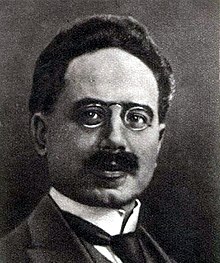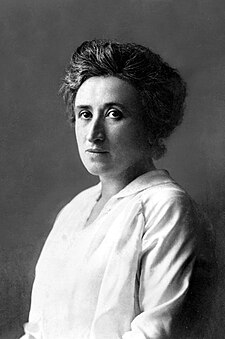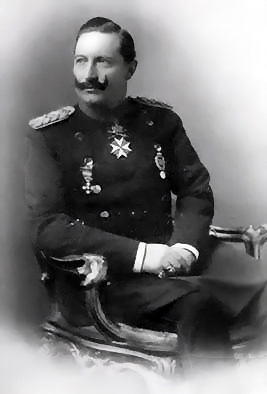During and before World War I, Germany was controlled by an emperor, and the last emperor to rule Germany from 1888-1918 was Kaiser Wilhelm II. After Germany lost the war, they were forbidden to have an emperor, and Kaiser Wilhelm abdicated (resigned) and fled to Holland.
Now, if Germany was not allowed its traditional 'monarch', emperor style rule, who would govern Germany? By the way, the photo on the left is a picture of Kaiser Wilhelm.
With the Kaiser gone, the social democrats were in charge, but they were by no means, 'In control'.
Remember in the last tutorial? In one of the terms of the treaty? Where the army was limited to only 100,000 men. What happened to the men in excess? Well, they all went home. Actually, not all of them. Some of them started joining parties that wanted to overthrow the Social Democrats.

The Left Wing Revolutionaries wanted a revolution, and they wanted to get rid of the new President of Germany, Fredrick Ebert and essentially govern Germany by themselves.
An example of a left wing organization which attempted to do this came from the Spartacus League, named after a famous Roman gladiator who had led a revolt in Ancient Rome. On 1919, January, the Spartacist made an attempt to overthrow Ebert's newly established government.
However, the Spartacist Uprising was poorly planned and had no chance of success. They did not get the support of other left wing groups. The Uprising was easily crushed by the army and the Freikorps, which were a group of soldiers who had been expelled from the army due to the military restrictions of 100,000 men.
The leaders of the Spartacist Uprising, Rosa Luxemburg and Karl Liebknecht, were murdered.
Ebert had dealt with the uprising, but at a high price. He had put his government into the hands of the army and the Freikorps, neither which were loyal.
 | ||||
| Karl Liebknecht |
 | |
| Rosa Luxemburg |
After the Treaty of Versailles, another attempted revolution occurred. In 1920, March, Freikorps units led by Wolfgang Kapp marched into Berline and declared a new national government. The army did not stop them.
To stop this revolution, Ebert appealed to the workers to help them. The workers started a strike and this strike was so successful that Kapp's Putsch , the declaration of the new government, was destroyed. Those who participated in the putsch were not punished.

No comments:
Post a Comment